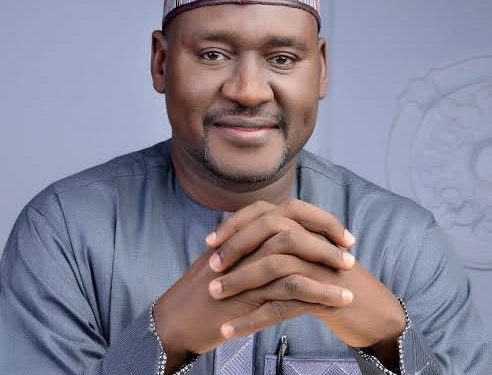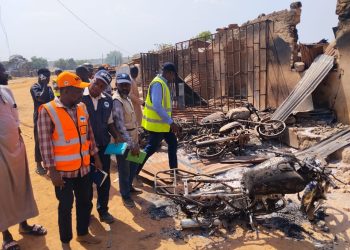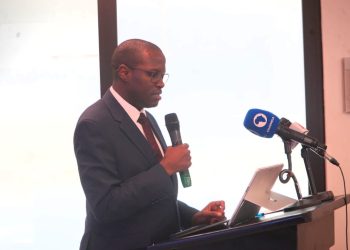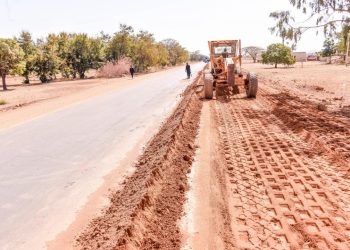By Nkechi Eze
The Corporate Accountability and Public Participation Africa (CAPPA) has announced the appointment of prominent civil society leader, Auwal Musa Rafsanjani, as the new Chairman of its Advisory Board, marking a renewed phase in the organisation’s mission to defend public resources, environmental justice, and democratic governance across Nigeria and the African continent.
According to a statement signed by CAPPA’s Executive Director, Akinbode Oluwafemi, Rafsanjani’s emergence followed a Board election held over the weekend. The organisation described his appointment as a “renewed mandate to intensify CAPPA’s advocacy for people, public resources, and civic freedoms” amid growing threats to accountability and participation in Africa.
Auwal Musa Rafsanjani, a household name in Nigeria’s civil society landscape, also serves as the Executive Director of the Civil Society Legislative Advocacy Centre (CISLAC) and the Head of Transparency International in Nigeria. He currently chairs the Board of Trustees of Amnesty International Nigeria, leads the Zero Corruption Coalition, and co-convenes the Say No Campaign. Over the past three decades, he has championed extractive sector reforms, human rights, and anti-corruption initiatives across the West African subregion.
His extensive portfolio also includes serving as the Sub-Saharan Africa representative on the Coordination Committee of the United Nations Convention Against Corruption (UNCAC) Civil Society Coalition, as well as being a founding member of the Transition Monitoring Group (TMG).
In announcing his election, CAPPA expressed confidence that Rafsanjani’s wealth of experience in policy advocacy and governance reform would greatly enhance its strategic influence across Africa. The organisation noted that his leadership comes at a time when civic spaces are shrinking, state resources are increasingly commercialised, and vulnerable communities face deepening risks of exclusion and environmental harm.
Other members of the CAPPA Advisory Board include Akinbode Oluwafemi, Executive Director and Board Secretary; Evelyn Nkanga Bassey, Treasurer; Scott Pegg; Kayode Ogunbunmi; Betty Abah; and Doifie Buokoribo, all of whom bring extensive expertise in public policy, rights activism, global development, and community defence organising.
Speaking after his election, Rafsanjani reaffirmed his commitment to strengthen CAPPA’s role as a fearless watchdog for the public good. He said the organisation would continue to champion campaigns around public health advocacy, environmental protection, extractive justice, and the defence of democratic and civic rights. “We will provide stronger institutional backing and clearer strategic direction to ensure that CAPPA remains a bold, credible voice for accountability and social justice,” he assured.
Meanwhile, the CAPPA Board issued a stern warning to both government and corporations over Nigeria’s increasing exploitation of solid minerals, particularly lithium and other critical resources driving the global green energy transition. The Board cautioned that while the mining sector’s contribution to Nigeria’s GDP has reportedly risen to 4.6 percent from less than 0.5 percent a decade ago, this growth trajectory mirrors troubling patterns of environmental degradation, forced displacement, and land grabs in mining host communities.
It warned that Nigeria risks “repeating the tragedy of the Niger Delta,” where decades of oil exploration generated national revenue but devastated ecosystems and livelihoods. CAPPA stressed that unless the government enforces strong environmental regulations, ensures transparent governance, and guarantees community consent, the country may once again fall into the trap of another resource curse.
“The global rush for green minerals cannot come at the expense of our people, their land, and their future,” the Board declared. “There is no just transition if the communities do not share in its benefits.”
The organisation called for a people-centred resource governance framework that protects land, water, culture, and livelihoods, emphasizing that these should never be treated merely as collateral for foreign or corporate investments. It urged Nigerians to critically question any development model that enriches a few while displacing many and destroying the environment.
Reaffirming its mission, CAPPA pledged to deepen collaboration with labour unions, grassroots movements, women’s groups, youth formations, and community defenders across Africa. “The fight for public accountability and participatory governance,” the statement concluded, “is one struggle that cannot be won by scattered voices, but by a united civic front committed to justice, sustainability, and people-first development.”
















